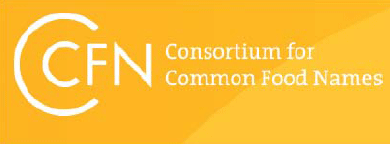
?CCFN Criticizes EU's Extortion Tactics on FTA Partners Regarding Geographical Indication Evaluations
 The Consortium for Common Food Names condemned the European Union's decision this week to delay implementation of its Free Trade Agreements with both Costa Rica and El Salvador a move the EU made to pressure its trading partners to approve certain geographical indication (GI) applications that had been filed in those Central American markets.
The Consortium for Common Food Names condemned the European Union's decision this week to delay implementation of its Free Trade Agreements with both Costa Rica and El Salvador a move the EU made to pressure its trading partners to approve certain geographical indication (GI) applications that had been filed in those Central American markets."This heavy-handed action by the European Union amounts to nothing more than extortion and clearly demonstrates that the provisions in its FTA with Central America that call for independent internal review of GI applications are simply intended to be pro forma approvals of EU GIs," explained Jaime Castaneda, CCFN Executive Director. "This is despite the negative effect that confiscation and monopolization of well-known terms such as parmesan', provolone', fontina', gorgonzola' and others would impose on the local companies that had already been producing these products in those markets for many years, as well as the harmful impacts on other trading partners using these common food names."
The FTA between the EU and Central America (Costa Rica, El Salvador, Guatemala, Honduras, Nicaragua and Panama) included provisions that required a list of GIs (including many common food names) to be evaluated by each country prior to approval. In keeping with this obligation as well as with its pre-existing obligations to other trading partners, Costa Rica and El Salvador published several of these applications for comment by interested parties, as is standard procedure with requests for new GIs or trademarks.
Several of the GIs applied for consisted of or contained common food names already in usage by other companies. As a result, objections to a number of these GIs were filed in both countries in order to ensure that key common names would not become monopolized if these GIs were to be approved. On July 24th media reports surfaced that in light of these objections Italy was insisting that the EU refuse to implement the FTA with Costa Rica and El Salvador on August 1 as scheduled.
"The EU's actions in this case are a direct threat to a country's ability to make its own determinations about which terms warrant protection in its market based on a variety of factors, including existing local production and prior commitments to other trading partners. This has particularly harmful impacts on developing countries," continued Castaneda. "As a result, the EU is not only abusing the rights these countries had negotiated for themselves, but is also sending a threatening message to all of its other FTA partners about the consequences that can be incurred when countries recognize the need to consider the usage status of key terms that the EU would like to confiscate and monopolize for its own commercial benefit."
CCFN called on the EU's trading partners to resist the EU's efforts to force them to prohibit usage of common food names, and called for continued unrestricted usage of these terms of importance to many food producers around the world.
Please visit The Consortium for Common Food Names website for more information about CCFN and our recent activity.
7.26.2013